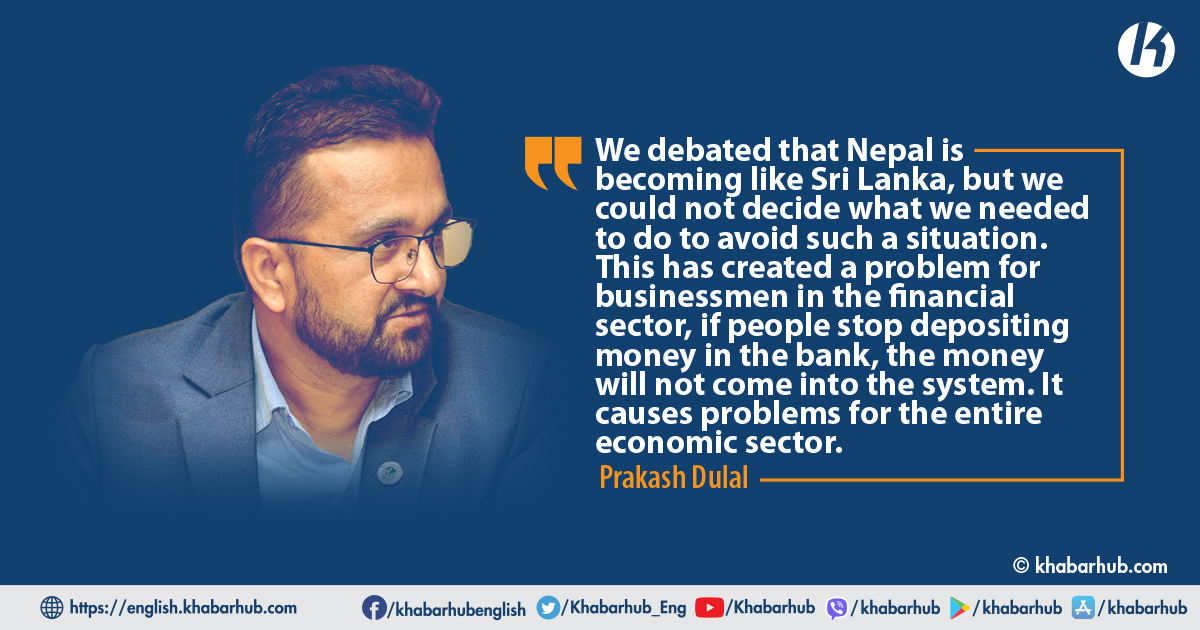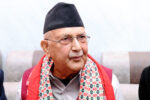The leadership level of any country has a great role in determining the fate of the country. The ratio of imports and exports in that country also makes a difference as to where the country is going.
In the case of Nepal, import is higher than export. We are spending about 93 percent of our earnings on imports. Because of this, we have no savings. When there are no savings, there is no money to invest.
When all the money we earn is spent, it also puts a financial burden on the country.
Now, when we fail to develop the trend of saving, Nepal will have a heavy burden financially. At present, the trend of shopping in big stores is on the rise. We are using more and more imported goods.
Ito advance in the field of development, it is necessary for the government to bring the rules accordingly. This year’s imports have increased by 25 percent compared to last financial year. In the last financial year, the import was 1.53 trillion, but now it has increased to 1.92 trillion.
Although the government has introduced some strict rules on imports this year, they have not been much effective. It is because we have more imports than exports. Even if the import is reduced by 40 percent, in the current situation, we cannot bear the trade deficit. The average income of Nepalis is very low.
The nation will collapse after the kind of leadership that declares municipalities but does not upgrade them. In particular, similar things are affecting the economic sector as well.
We have not been able to earn foreign currency. If we are not able to control it, it will really bring us down financially. In that case, we will be following Sri Lanka’s fate.
Unfortunately, there is not much debate about what can be done to improve the economic system of Nepal. Sometimes, it seems the governor of the Nepal Rastra Bank (NRB) is managing the country’s economy. If the situation continues, the country will be like Sri Lanka.
The main opposition parties have started commenting that Nepal is also following the path of Sri Lanka. Now they have started withdrawing the money deposited in the bank.
Recently, my friend withdrew millions of rupees saying that there will be an economic recession in the country and later the bank will not be able to give money. Whereas, we said that we will give them when they need it. Now people are withdrawing millions of rupees from the bank. The reason for this is that they think Nepal can go the way of Sri Lanka.
As far as the people are concerned now, the banks will not be able to pay them tomorrow. Therefore, now bank customers have started withdrawing their money instead of paying 19 percent interest.
We debated that Nepal is becoming like Sri Lanka, but we could not decide what to do to avoid such a situation. This has created a problem for businessmen in the financial sector, if people stop depositing money in the bank, the money will not come into the system. It causes problems for the entire economic sector.
Therefore, if we continue to argue that Nepal is becoming like Sri Lanka, it will have more impact. Secondly, who is leading the government can also have an impact. We have not even understood the situation in Nepal. Many places in Nepal do not have road accessibility, but the government has declared municipalities. Again we are becoming more urban-oriented.
We got promoted from the developing to the developed by declaring the villages without infrastructures the municipalities. This is false data.
It is especially beneficial for the leader. The leader can say that his place has become a municipality, but they have no other plan for the development of those areas.
Prime Minister Sher Bahadur Deuba made it clear to the Chinese representative that the debt of the BRI project could not be paid. Some leaders are arguing that they should take BRI loans. However, they have not taken into account the potential risk it will cause tomorrow.
The nation will collapse after the kind of leadership that declares municipalities but does not upgrade them. In particular, similar things are affecting the economic sector as well.
On the other hand, we are debating without understanding the effect of Millennium Challenge Corporation (MCC), BRI and other agreements that are currently being discussed in Nepal. If Nepal is going to build a project on loan, it needs prior discussion on whether Nepal can afford it or not.
If China’s BRI project also carries a debt to Nepal, it will benefit China, but Nepal will sink economically. Therefore, Nepal should not undertake big projects with loans now.
We had so muc ‘headaches’ in the MCC project. MCC was a grant from the US government, and we made an unnecessary fuss about it. We have not discussed the project to be made by taking a loan. First, even if we accept non-transparent loans, we cannot repay the loan.
Prime Minister Sher Bahadur Deuba made it clear to the Chinese representative that the debt of the BRI project could not be paid. Some leaders are arguing that they should take BRI loans. However, they have not taken into account the potential risk it will cause tomorrow.
Now, there is a trend that if we advocate a side against the other, we will be nationalists. And this nature of advocating foreign interests has caused many internal problems as well.









Comment